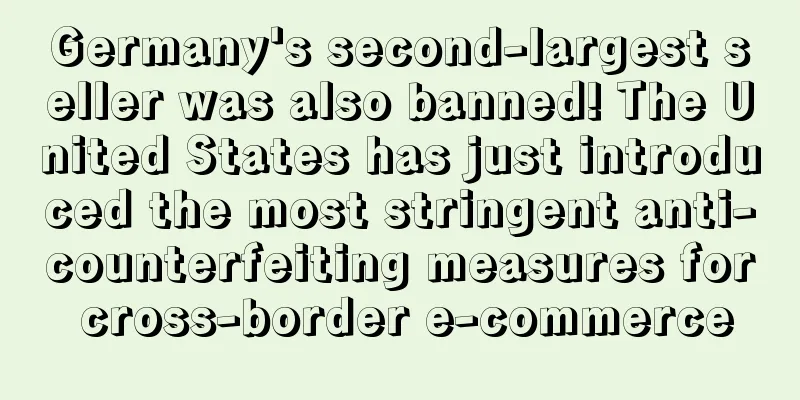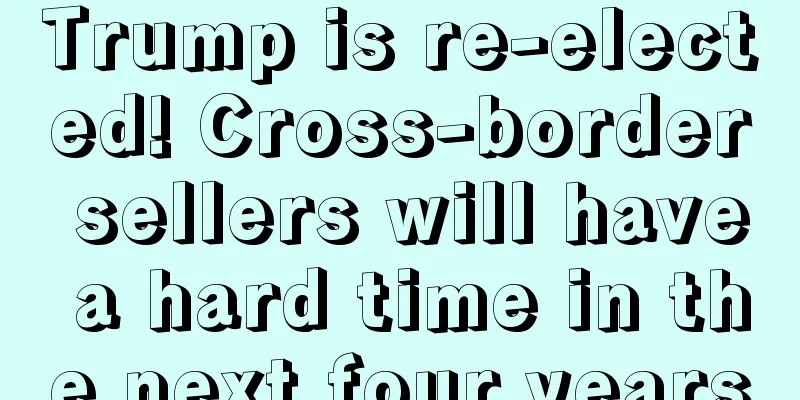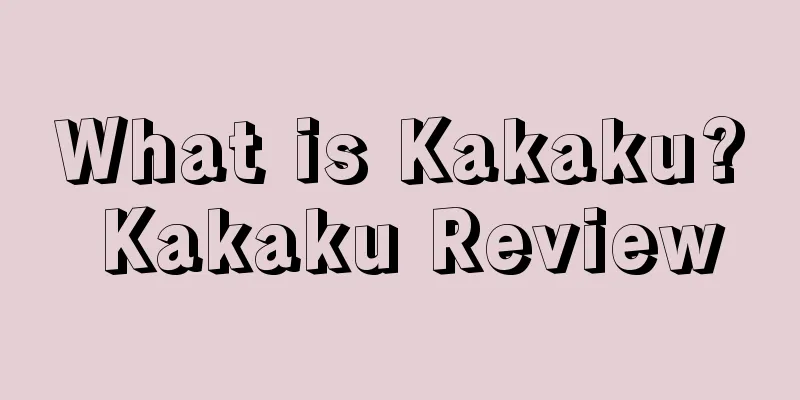Germany's second-largest seller was also banned! The United States has just introduced the most stringent anti-counterfeiting measures for cross-border e-commerce

|
There is a saying circulating among cross-border sellers: "If you get caught, you are selling fakes; if you don't get caught, your products are hot-selling." This refers to the huge profits brought by counterfeit goods . Because of this, governments and major cross-border e-commerce platforms have always been strict in cracking down on counterfeit goods, never sparing any means. Now, the latest anti-counterfeiting measures have come out again, and even super sellers have been affected. On January 31, 2020, US President Trump signed the first " Executive Order 19304 " to prevent the circulation of counterfeit goods and other contraband into the US market. The focus of this executive order is to combat the trading of counterfeit goods on third-party online e-commerce platforms including Alibaba, Amazon and eBay . As early as April 2019, Trump signed a memorandum requiring DHS to collaborate with other administrative and law enforcement departments to submit a report on measures to combat the circulation and trade of counterfeit goods.
It is reported that this is the biggest effort made by the United States to combat counterfeiting so far . The key targets of its supervision include e-commerce platforms, registered importers, postal networks and other circulation links , and the main targets of the crackdown are " sellers of counterfeit goods on the platform , regardless of which country (they come from) . According to data from the International Anti-Counterfeiting Alliance, the global total value of counterfeit and contraband goods traded through cross-border e-commerce platforms has reached 1.5 trillion . Steve Shapiro, Trump's trade adviser and director of the FBI's intellectual property unit, said that counterfeit and smuggled goods cause the US economy to lose about 600 billion US dollars each year , equivalent to 3% of the US GDP . However, companies like Amazon, eBay , and Walmart , which make a lot of money "by selling counterfeit goods", do not have to take full responsibility for this, which is obviously wrong. In response, companies such as Amazon and Walmart have publicly stated that they will cooperate with the US government to strengthen its anti-counterfeiting efforts.
In addition to the US government, brands and e-commerce platforms are also taking action to combat counterfeiting. The first to bear the brunt are luxury groups and brand companies, such as the familiar LV . According to a report by the Organization for Economic Cooperation and Development (OECD) in 2016 , the global counterfeit trade is worth about $ 4.5 trillion, of which fake luxury goods account for 60% to 70% and about 40% of fake luxury goods transactions are completed online .
To this end, luxury groups need to invest huge financial and human resources to combat the circulation and sale of counterfeit goods. Take the LVMH Group as an example. According to reports, the group has invested $ 17 million in anti-counterfeiting operations in 2016 , and has deployed about 60 full-time lawyers every year just for anti-counterfeiting. As a result, at the earnings conference at the end of January 2020, Barnard Arnault, the helmsman of the LVMH Group, once again made it clear that he would distance himself from Amazon, the world's largest e-commerce giant. Arnault believes that the money earned by the $ 1 trillion e-commerce platform created by Bezos is "linked to organized crime" on the grounds that Amazon provides consumers to third-party sellers (including counterfeit sellers) for commissions and sells (counterfeit) products through the platform to make profits, and this transaction creates "links to organized crime." Fake Louis Vuitton bags that are hard to tell the real from the fake In addition, Amazon is also fighting counterfeiting . It is reported that Amazon is planning to provide more data information to law enforcement agencies to combat counterfeit goods on the platform. Unlike in the past when it only provided information on banned goods vendors, Amazon plans to "provide information on counterfeit dealers to the European Union and the federal government." As early as 2016, Alibaba introduced a special measure aimed at identifying counterfeit goods, counterfeit manufacturers and distributors through data analysis, and transferring this information to law enforcement agencies.
This wave of anti-counterfeiting is coming in full force. Recently, a super seller on Amazon fell into this trap. According to foreign media reports, the second largest Amazon seller in Germany was recently "banned" by Amazon for allegedly selling pirated DVDs. It is understood that the products sold by Rebuy, headquartered in Berlin, have more than 1.5 million reviews on Amazon , but have now been "killed". In addition, the products it sells have more than 1.7 million reviews on eBay, with more than 40,000 reviews added in the past month alone. There are more than 850,000 live listings on eBay Germany, which can be said to be an absolute big player. It is conceivable that this big man would do at least the same level of business on Amazon, but because of selling counterfeit goods, his Amazon account was closed, and he lost more than half of his turnover overnight , or even more. It is understood that Rebuy's daily sales are about US$60,000 , ranking ninth in the world on Amazon and second in Germany . After the incident, Rebuy submitted an action plan to Amazon, but was rejected by Amazon. The incident continued to ferment until its German store was closed . I didn’t expect that such a big boss could be forced to “close down”. It’s really shocking. It seems that this time they are serious. It is worth mentioning that intellectual property protection is also a focus of China-US trade negotiations. In the "Phase One" China-US trade agreement signed in January 2020, the two sides reached an agreement on strengthening intellectual property protection and required China to improve criminal and civil litigation procedures to combat online infringement, piracy and counterfeit goods.
At the same time, in recent years, the government has also made great efforts to improve intellectual property protection and set up special courts in major cities to deal with the increasing number of infringement cases. The following series of data is the best proof.
Therefore, selling counterfeit goods may feel good for a while, but it will be a disaster if you are caught. Dear sellers, please do not put yourself in danger. It is very necessary to apply for trademarks, patents, etc. as soon as possible. (Source: SellerGrowth) |
<<: Top 10 Evergreen Products in Cross-Border E-Commerce
>>: Amazon people are positive and cute during the epidemic!
Recommend
What is Amazon Poland (Amazon.pl)? Amazon Poland (Amazon.pl) Review
Amazon Poland (Amazon.pl) is a local e-commerce we...
Canadian online shopping demand is weak! Many categories will suffer setbacks during the year-end peak season!
<span data-docs-delta="[[20,"获悉,根据万事达卡消费脉搏...
What is lovehedone? Lovehedone Review
Lovehedone is an e- commerce platform focusing on ...
Starting from September, the commission will be halved! Amazon launches a new promotion
Not long ago, Amazon France notified sellers by e...
Prime Day is coming, are you not ready yet? Here is a guide for you!
Recently, the WeChat calculation mechanism has ch...
At 7pm on November 7th! Walmart will fire the first shot of Black Friday!
<span data-docs-delta="[[20,"获悉,沃尔玛将于11月的每...
What is Add Both to Cart? Add Both to Cart Review
Add Both to Cart, that is, adding both to the shop...
[On-site report] Detailed discussion of the pitfalls and opportunities of brands going overseas
Since the Amazon cocktail party last September, ma...
What is PriceFox? PriceFox Review
Price-Fox aims to help sellers automatically monit...
On the 24th, Alice wants to tell you about complaints and the new advertising policy...
Yes, we have prepared the following three topics o...
Amazon recalls more than 1 million products made in China!
According to foreign media reports, more than 1 mi...
What is Hepsiburada? Hepsiburada Review
Hepsiburada is Turkey's leading e-commerce web...
Do you understand the integrated Amazon ads?
What big moves has Amazon made recently? Then the ...
Online grocery sales in the United States reached $97.7 billion in 2021! More than 70% of American households will shop online!
<span data-shimo-docs="[[20,"获悉,据外媒报道,2021...
Facebook plans to expand Facebook Pay to more platforms
Facebook is expanding Facebook Pay to other platfo...









